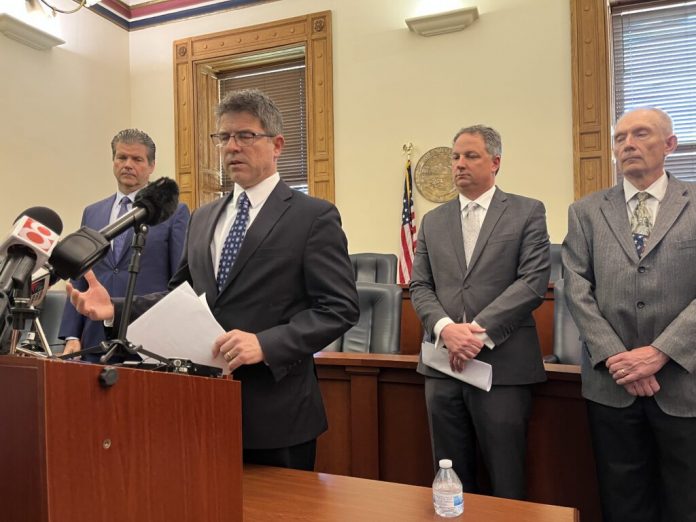
By Whitney Downard
Indiana Capital Chronicle
For The Republic
INDIANAPOLIS — Republicans in both chambers have reached a compromise on the state’s two-year budget, earmarking more than $1 billion for school vouchers while maintaining a commitment to pay down the state’s outstanding debt obligations according to a presentation released Wednesday.
The deal reflects negotiations between the two caucuses, whose budget proposals differed significantly when it came to education priorities and reserves accounts. House lawmakers dedicated $2 billion new dollars to education, with roughly one-third of that designated to expand voucher eligibility to families making roughly $220,000 annually. Senators initially disagreed, maintaining vouchers at their previous appropriation.
In terms of savings, the House held back just over $1 billion while senators more than tripled that number to $3.2 billion. The compromise ends the two-year biennium with a $2.7 billion surplus.
But those proposals came before the latest revenue forecast projected the state would collect an additional $1.5 billion in revenue, padding the state’s coffers and giving budget writers far more flexibility.
Leaders kept true to their promise to increase funding for mental health, which grew from $35 million to $50 million each year with an additional $10 million for regional mental health facilities. However, leaders opted not to add a $1 monthly surcharge on cell phones as a form of dedicated funding for the service.
Earlier, bill author Sen. Mike Crider, R-Greenfield, admitted that large state reserves would make such a tax a hard sell, though it mirrors the $1 charge for 911.
Additionally, the compromise kept public health funding at its current level: $75 million in the first year followed by $150 million the next. That represents less than half of the original ask and roughly two-thirds of Gov. Eric Holcomb’s proposal.
The presentation didn’t include a cigarette tax, which House Republicans and Senate Democrats both proposed. Advocates said such a tax could be used to bolster public health funding, which is among the lowest in the nation.
The Indiana Capital Chronicle covers the state legislature and state government. For more visit indianacapitalchronicle.com.




